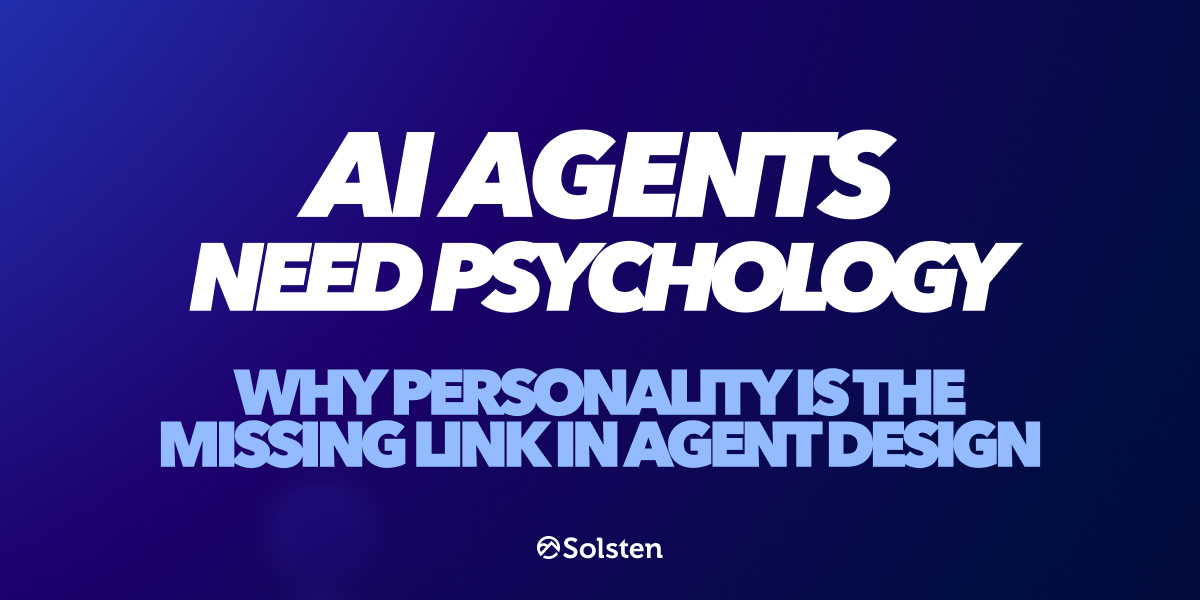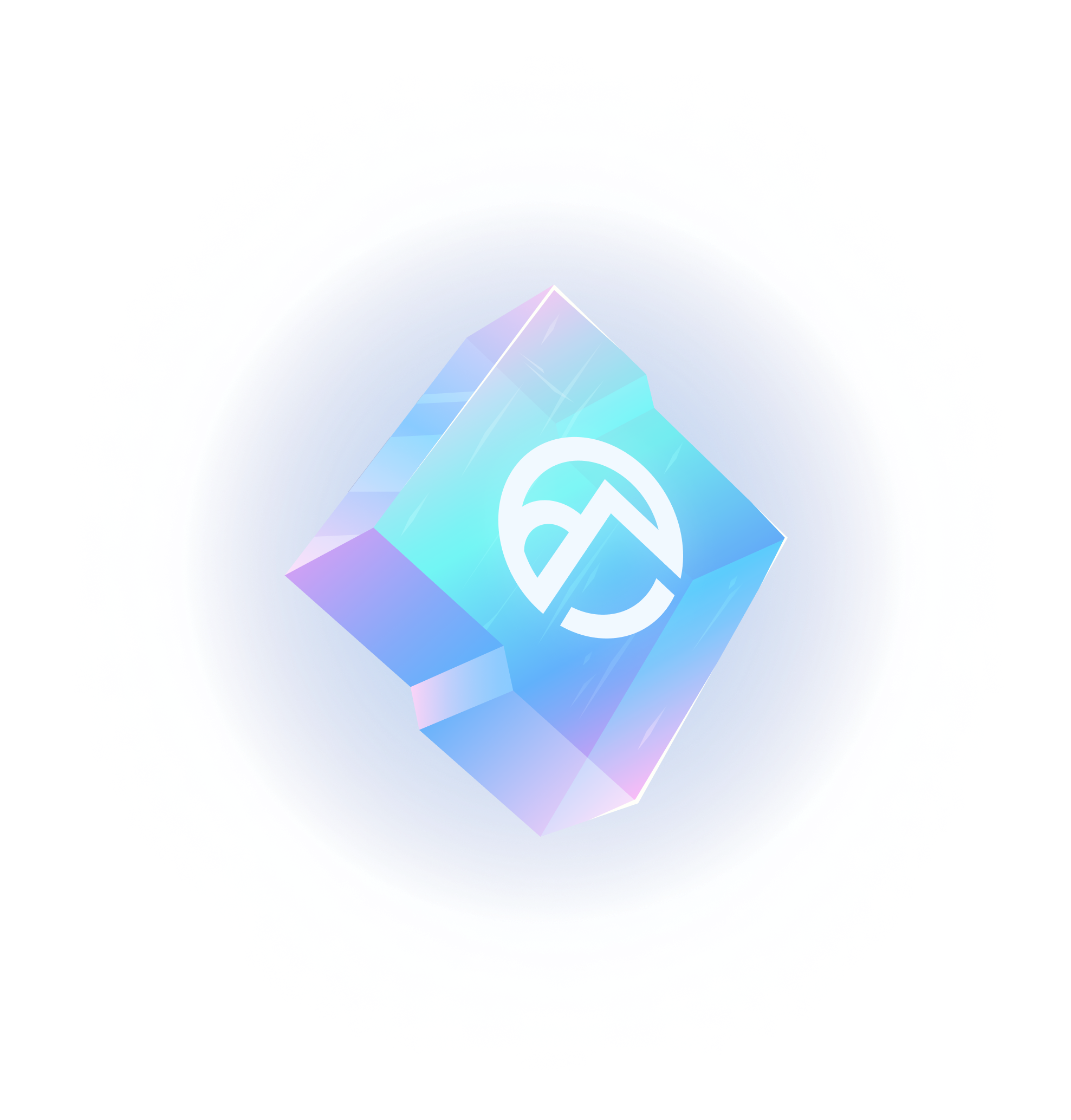If you’re searching for “AI agents” and exploring how to build them, you’re likely deep in the world of digital experiences, machine learning, conversational UX, or customer engagement. And you’re not alone — the rise of generative AI has opened the floodgates to thousands of companies racing to build more intelligent, more human-like AI agents.
But here’s what most builders miss:
AI agents are only as effective as their personality.
That’s because human decision-making isn’t driven by logic alone — it’s driven by psychology. Values, personality traits, and motivations come before behaviors. They shape how people speak, decide, feel, and act. So, if you’re building AI agents designed to interact with people — or even represent your brand — you need to start with psychology.
This is exactly where Solsten and our platform Navigator come into play. We’ll break down exactly why personality is the future of AI agent development, and how you can use Solsten to create agents that feel intelligent, emotionally aligned, and on-brand.
But What Are AI Agents, Really?
AI agents are autonomous systems or bots that can perceive their environment, process information, and make decisions to achieve specific goals. These agents can:
- Answer customer support questions
- Personalize product recommendations
- Simulate NPCs in games
- Manage operational workflows
- Assist in therapeutic or educational settings
But whether they live inside a chatbot, a game, or an app, the most advanced AI agents aren’t just reactive — they’re social, emotional, and adaptable.
Why Most AI Agents Feel Robotic
Today’s AI agents often rely on language models trained on massive datasets. While this enables fluid, human-like communication, it lacks psychological grounding. Most agents:
- Don’t have a consistent personality
- Lack emotional intelligence
- Struggle to make value-aligned decisions
Without a defined psychological foundation, these agents often feel uncanny or flat. They can mimic tone, but they don’t genuinely reflect human motivations, values, or context.
Why Personality and Psychology Must Come First
1. Psychology Drives Decision-Making
Whether you’re building an AI shopping assistant, a health coach, or an NPC, your agent will make thousands of decisions. Those decisions should align with human values and the desired outcomes of your brand.
Personality and psychological traits define how those decisions get made.
Without psychology, AI agents are just parrots. With psychology, they become trusted advisors, companions, or guides.
2. Emotional Alignment Builds Trust
People trust and connect with other people based on shared values and emotional resonance. An agent with a well-defined personality can:
- Mirror the emotional tone of its user
- Offer support that feels personal
- Behave consistently over time
3. Personality Brings Brand Voice to Life
Your AI agent should sound and behave like your brand — not like every other generic chatbot. Brands like Duolingo, Nike, or Patagonia have unique tones, values, and personalities. AI agents should too.
How to Build AI Agents with Real Personalities
The secret isn’t more data. It’s the right kind of data. You need deep psychological insight into both your agent and the people they’re interacting with.
That’s where Solsten comes in.
Solsten is the global leader in applying psychological AI to product and experience design. Our platform Navigator measures the values, motivations, and psychological traits of millions of people annually — across 20,000+ brands and 100,000+ interest groups.
With Solsten, you can:
- Define your agent’s personality based on real psychological frameworks
- Understand the psychological makeup of your target audience
- Align agent behavior with your brand voice and values
- Test and adapt agents in real-time based on emotional resonance
Whether you’re building agents for games, ecommerce, education, or healthcare, Solsten helps you make them feel more human — and more effective.
Why Audience Psychology Is the Secret to Agent Performance
It’s not enough for an AI agent to have a personality. That personality has to be the right one for your audience.
Solsten lets you:
- Upload your audience or product
- Instantly get a psychographic profile of your users
- Compare them to other brands, games, or experiences
- Generate personality templates that will resonate
The result? AI agents that speak the language of your audience — not just in words, but in values, tone, and decision-making.
Use Case: AI Agents in Gaming
Imagine building NPCs that aren’t just scripted — they’re alive. With Solsten, game studios are creating agents that:
- Behave differently based on real psychological motivations
- Adapt to player psychology
- Reflect the emotional tone of their environment
This creates radically more immersive and emotionally resonant gaming experiences.
Use Case: AI Agents for Ecommerce
AI shopping assistants powered by psychographic insight can:
- Recommend products based on customer values and lifestyles
- Mirror the tone of brand-voice-aligned influencers
- Build long-term loyalty by acting like a trusted guide
Why Talk to Solsten Before You Build
If you’re serious about building AI agents that will actually drive results, you need to get the psychology right from the start. Solsten is the only platform in the world that offers:
- Psychological AI frameworks built on validated science
- Audience psychographic data at massive scale
- Tools to define, test, and optimize agent personalities
Start a free account or book a demo today →
FAQs
1. What is an AI agent?
An AI agent is an autonomous system that can perceive its environment, process data, and make decisions or take actions toward a goal.
2. Why do AI agents need a personality?
A personality defines how an agent makes decisions, communicates, and builds emotional connections — making it feel human and trustworthy.
3. How does Solsten help build better AI agents?
Solsten uses psychological AI to define agent personalities and align them with audience psychology, brand values, and emotional tone.
4. Can I use Solsten to build agents for different industries?
Yes. Solsten is used across gaming, ecommerce, health, education, and beyond — anywhere emotional intelligence and trust are key.
5. What’s the difference between behavior-based and personality-based agents?
Behavior-based agents react to actions. Personality-based agents make decisions based on consistent psychological traits and emotional intelligence.
6. How do I measure the success of a personality-driven AI agent?
Use audience feedback, engagement metrics, and Solsten’s psychographic resonance tests to refine personality alignment and effectiveness.
7. How is Solsten different from other AI or data tools?
Solsten focuses on psychology-first AI, giving you access to real-time psychological data and personality modeling at global scale.
8. How do I get started with Solsten?
Visit navigator.solsten.io to start your free account or book a demo and begin building the future of emotionally intelligent AI.
Ready to Build Emotionally Intelligent Agents?
The future of AI isn’t just smarter — it’s more human. And humanity begins with psychology. Let Solsten help you build the agents that truly resonate.






